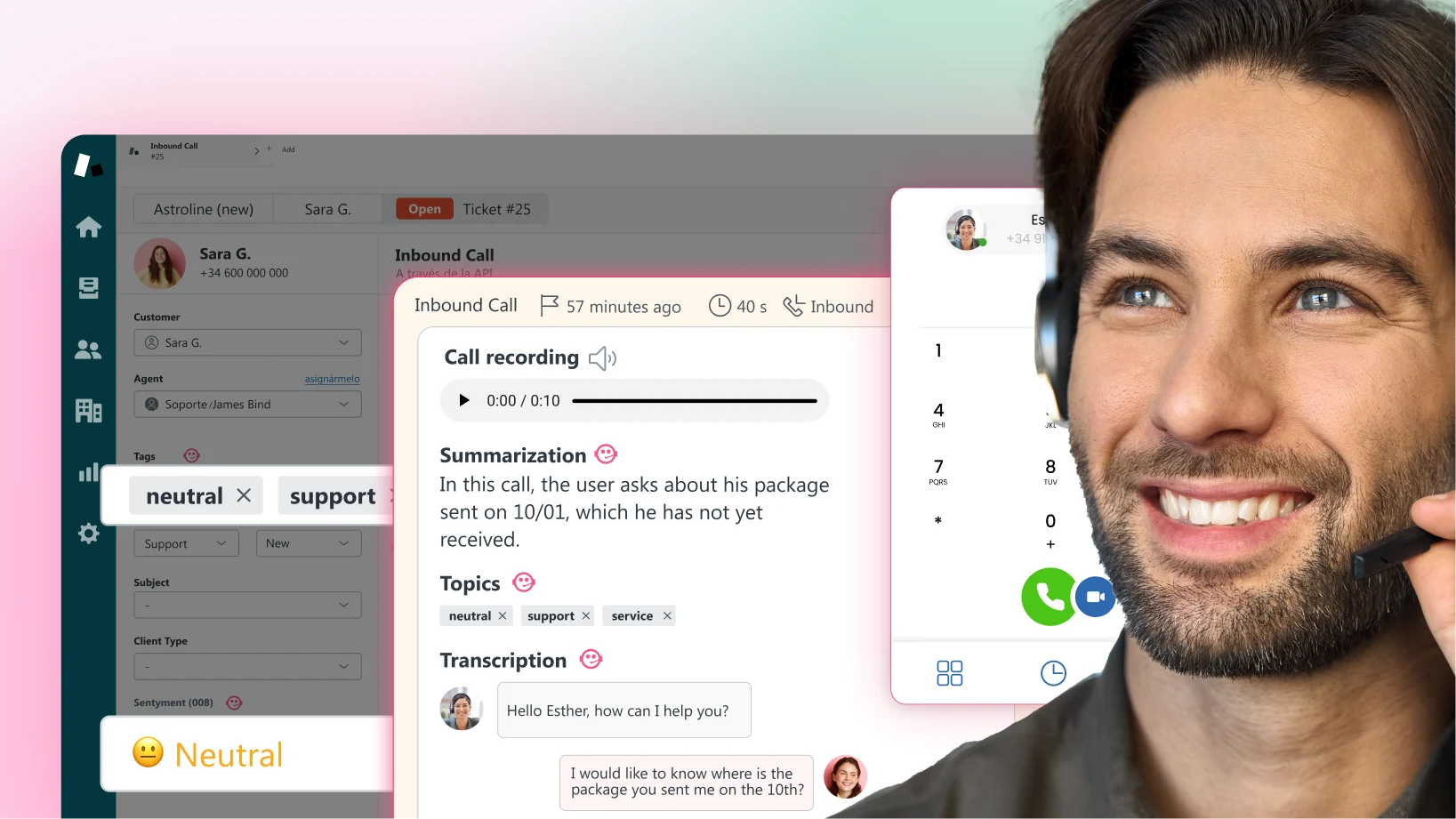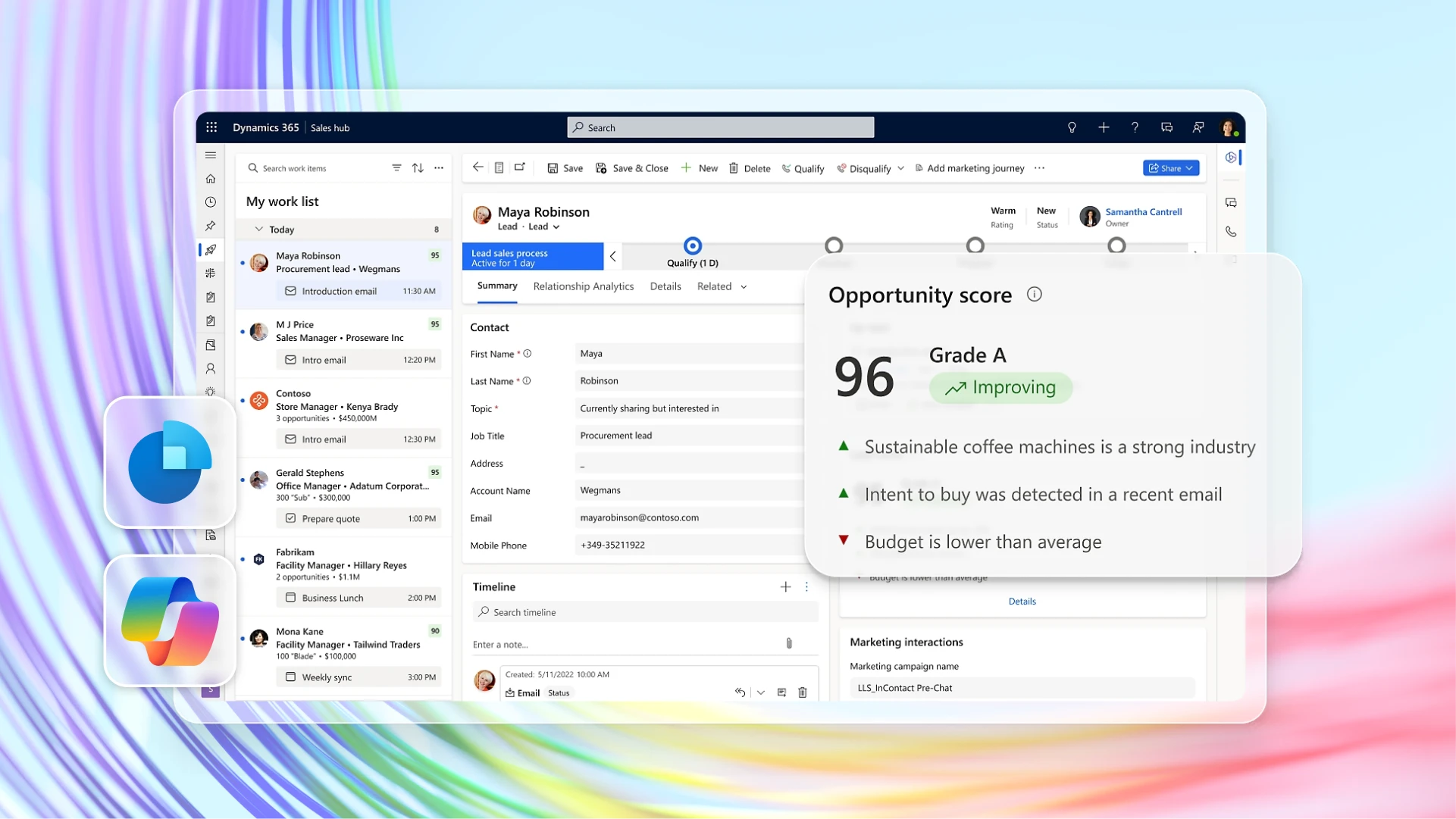
Why Migrate Your VoIP Telephony to Microsoft?
December 18, 2024
In an increasingly digital business environment, VoIP telephony has become a necessity rather than an option.
Microsoft offers a robust ecosystem that integrates advanced voice solutions such as Teams Phone, mobility services like Teams eSIM services, and powerful integrations with Dynamics 365 Sales and Dynamics 365 Customer Service Contact Center.
In this article, we'll explore why migrating your VoIP telephony to Microsoft can be a strategic decision for your company.
1. Teams Phone: The Core of Microsoft's VoIP Telephony
Microsoft Teams Phone is the backbone of Microsoft's VoIP solution. Enabling telephony in Teams provides a complete enterprise telephony system with everything an office team might need. It combines calls, meetings, and collaboration in a unified platform.
Key Advantages:
Cloud Calls: Make and receive calls from anywhere (with the same quality as a Teams call).
Single Number: Unify your work number across all devices.
Cloud PBX: Manage extensions, IVRs, and call queues. It includes all the features of any other virtual PBX.
Security and Compliance: Built-in data protection following global standards.
Use Cases:
Distributed sales teams.
Hybrid or remote staff.
2. eSIM for Teams Phone: Limitless Mobility
With eSIM solutions for Teams Phone, you can take enterprise mobility to the next level by enabling remote users and frontline workers to use Teams Phone on their mobile devices without relying on Wi-Fi or data networks.
Main Benefits:
Global Connectivity: Keep your business number anywhere in the world (with GSM roaming calls).
Cost Reduction: Eliminate international roaming charges.
No Additional Hardware: Everything managed from the cloud.
Practical Applications:
Mobile sales forces.
Field customer service teams.
Frontline workers.
3. Integration with Dynamics 365 Sales: Boosting Sales
Connecting Teams Phone with Dynamics 365 Sales allows sales teams to increase productivity through:
Automatic Customer Record Pop-Up: This integration instantly displays the customer’s record and full information during a call, speeding up sales.
Automatic Call Logging: Every call event is attached to its corresponding contact, account, and opportunity.
Sales Insights: Dynamics Sales’ Conversational AI provides real-time transcription, sentiment analysis, and many more metrics (see Dynamics Sales Conversational Intelligence).
Process Automation: Follow-up reminders and opportunity management.
Sales Impact:
Shortened sales cycle.
Increased opportunity conversion.
More accurate data.
4. Contact Center: Excellence in Customer Experience (CX)
Businesses can create a complete contact center by integrating telephony via Azure Communication Services with Dynamics 365 Contact Center. This enables personalized experiences and faster resolutions powered by Copilot.
Key Features:
Smart Routing: Distribute calls based on agents' skills or availability.
Real-Time Dashboards: View agents' performance metrics in real time.
AI Automation: Implement bots and virtual assistants for more effective self-service.
Practical Cases:
24/7 customer support.
Critical incident management.
CX teams.
Conclusion: A Comprehensive Solution for Business Communication
Migrating your VoIP telephony to Microsoft is not just a technological upgrade but a complete transformation of your communication strategy. From Teams Phone for daily calls to Voost for Teams eSIM for global mobility, and advanced integrations with Dynamics 365 for sales and customer experience, Microsoft offers a scalable, secure, and fully integrated solution.
Are you ready to take your business communication to the next level? Contact us and discover how to implement these solutions in your organization.
Tags
Al enviar, acepta recibir correos electrónicos de Astroline. Para saber cómo Astroline maneja su información, consulte nuestra política de privacidad.



